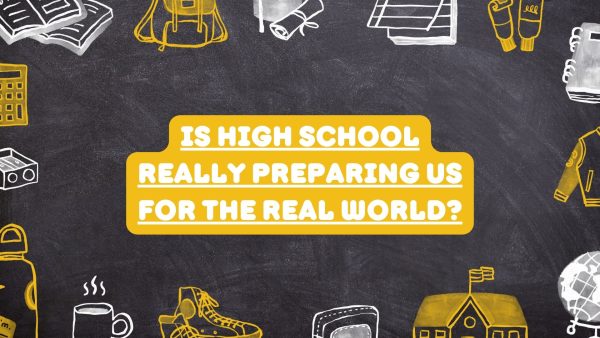Academic validation: the unhealthy relationship of a students’ life
Guadalupe Vargas-Gomez (made with Canva)
Students living off of academic validation only prioritize their academics and leave out things like their mental health, social life, and extracurriculars.
Seven out of ten teens have named anxiety as a major problem among each other. Individuals continue to applaud those who receive high academic achievements but do not realize the amount of work the student had to do. With the praise a student receives from a young age, they may base most if not their whole identity on their academic success. Academic praise can become unhealthy when not managed properly.
Two-thirds of high school students and 87 percent of college students find themselves stressed about their academics. Most fear that if they receive a low grade, then they are a failure in life.
Psychology Professor Jeffrey Pedroza, B.S. in Psychology, and M.S. in Clinical Psychology was a therapist for 20 years and has been a Psychology professor for more than 20 years teaching areas such as the introduction of psychology, and abnormal psychology.
“Unhealthy consequences include correlating our sense of identity with our grades. ‘I have a poor grade, therefore I am a bad person,’” replied Pedroza when asked about the greatest consequence of having an unhealthy academic validation desire.
Academic validation is the reliance a student has on their academics in order to feel appreciated and successful/valued in life. It is a constant reliance on a letter grade or appreciation from their educators.
“Academic validation is a phenomenon in which students seek gratification from their academic grades, goals, and accomplishments. Sometimes, their well-being and self-esteem is tied to academia,” said Pedroza.
Students who work towards academic validation usually end up as perfectionists. This can lead them to stay up all night, have little to no social life, and/or be on the verge of burnout.
“Often students seek academic validation to feel that they are doing well, but that can also be very draining, exhausting, and take a toll on mental health,” said high school Counselor Arlene Quiñonez, B.A. in Psychology, and M.A. in Educational Counseling.
Those who are seen at home take part in a student’s search for academic validation.
“There are also parent expectations, where parents contribute a lot to students stressing out because they do not have perfect A’s. So, there is that pressure from families, from school, from ‘wanting a future,’” said Quiñonez.
If an individual only works for academic validation, they will be in a narrowed head space at the end of their academic journey. When they finally finish that journey, they will likely be in a workspace in which they are not content because that was the last of their concerns.
According to Inc. Magazine, “the problem is we end up making career choices to impress other people so we can feel that fleeting rush of validation. In the process, we lose sight of what makes us truly happy.”
Being successful in academics is a positive thing however when students overwork themselves to continually receive that form of validation, it becomes negative, as they leave out crucial aspects of their life.
Quiñonez said, “Yes you do need to be academically strong to pursue a future, but there is much more to a student than that. It’s not just all academics, but also who you are as a student. Who is this student that yes, academically excels but what more does the student have to offer? We are more than our grades.”

I love listening to music, watching sunsets, and scrolling on Pinterest.





































